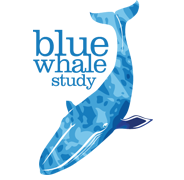Yumbah has carefully sited its farms in isolated areas where the vast and ancient continent of Australia meets the Great Southern Ocean. We are privileged to work in locations such as Bicheno, Narrawong, Port Lincoln, Kangaroo Island and the Mornington Peninsula.
Sustainability is crucial to the success of Yumbah’s produce and is front and centre of everything Yumbah does. In the last 50 years, overfishing, habitat degradation and pollution has seen wild shellfish fisheries across the globe progressively decline.
Responsibly culturing shellfish helps to satisfy a growing need for premium quality seafood, whilst helping to safeguard wild populations from overfishing. Yumbah has worked hard to close the breeding cycles for our abalone, mussels and oysters. One hundred percent of our products are bred from Yumbah pedigree broodstock in our purpose-built nurseries, which means we do not rely on wild fisheries for restocking.
Yumbah abalone farms are pump ashore, meaning all discharge water can easily be monitored and waste quality and its impacts are tightly regulated and controlled. Yumbah adheres to strict license conditions from government agencies and collects regular water quality and environmental monitoring data. A recent survey of receiving waters at Yumbah Narrawong revealed no evidence of any environmental impact after sixteen years of operation.
Yumbah is constantly striving to improve sustainability to ensure that our abalone can be eaten for generations to come.
The Bonney Upwelling
Dr Peter Gill explains the natural phenomenon known as the Bonney Upwelling, the important role it plays in producing some of the world’s most prized seafood and how it helps feed the largest mammal on the planet.
Yumbah’s investment in producing feed allows us to not only monitor the quality of ingredients and their sustainable source, but also actively participate in research and development to further improve feed conversion ratios.


